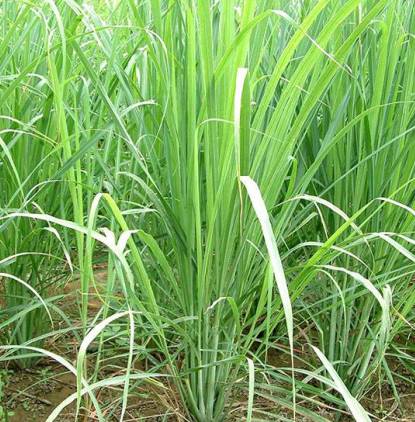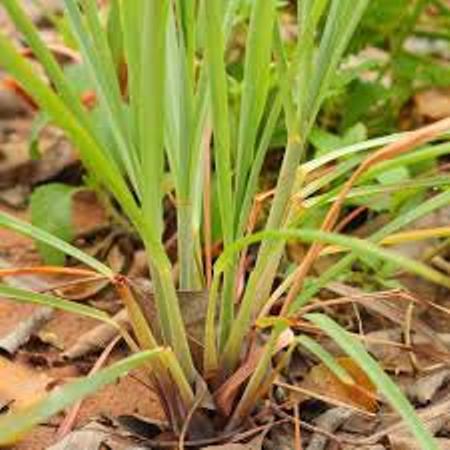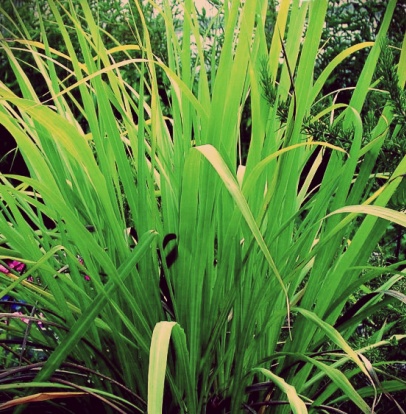




Botanical name Cymbopogon martinii var motia
Family Poaceae
Source Leaves
Origin Eastern Africa
Processing Method Steam Distillation
Color/Consistency A thin, yellow to light brown liquid.
Aroma A middle note with a middle aroma, Palmarosa Essential Oil has a sharp, floral note with a hint of rose.
Blends With Ylang-Ylang Geranium, Lime, Rosemary and Bergamot
Product Abstract
Palmarosa is a perennial aromatic grass with stiff, upright, yellow or yellow-green stems supported by a small but penetrating root system. Palmarosa is one of nature’s star upholders of skin health. Because of this, palmarosa often finds a place in our skin care routines, for both our faces and bodies. It regulates skin moisture and oil production and is therefore useful for both dry and oily skin. Offering cell renewal benefits, palmarosa essential oil nourishes and restores skin health and harmony. It is also known for its ability to rejuvenate tired, sore feet, so it makes a great foot soak.
History
The name palmarosa was given to this unique therapeutic plant because its fragrance is similar to that of rose oil. In the historical times, the Turks and Indians combined palmarosa essential oil with rose oil. While palmarosa pure essential oil has numerous therapeutic uses, it is more frequently used for cosmetic or rose solutions due to its moisturizing properties.
Harvesting/Extraction Information
Extraction of this essential oil is done by steam distillation of dried grass which is harvested before flowering. The chief constituents of this oil are geraniol, geranyl acetate, dipentene, linalool, limonene, and myrcene. This oil smells like rose oil, which is how it got the name, Palma rosa. This is also why it is sometimes used in place of rose oil and is often adulterated with rose oil since it is cheaper.
Common Usage
Caution
This oil is considered completely safe since it is a non-irritant, non-sensitizing, and non-toxic substance.
Key constituents
Geraniol 74.5–81.0%
Geranyl acetate 0.5–10.7%
(E,Z)-Farnesol 0.5–6.1%
Linalool 2.6–4.5%
(E)-b-Ocimene 1.3–3.1%
b-Caryophyllene 0.9–2.6%
Geranial 0.5–1.9%
Caryophyllene oxide 0.1–1.8%
b-Myrcene 0.6–1.3%
Elemol 0.2–1.0%
(Z,Z)-Farnesol 0.1–1.0%
Quality Palmarosa oil may be adulterated by the addition of geraniol.
Safety summary
Hazards Drug interaction; skin sensitization .
Cautions (oral) Drugs metabolized by CYP2B6.
Maximum dermal use level 6.5%
Our safety advice
We recommend a dermal maximum of 6.5%, based on 81% geraniol content with a dermal limit of 5.3%.
Regulatory guidelines Has GRAS status.
Organ-specific effects
Adverse skin reactions In a mouse local lymph node assay, palmarosa oil was a weak sensitizer, with a similar potency to geraniol (Lalko & Api 2006). Undiluted palmarosa oil was moderately irritating to rabbits, but was not irritating to mice;
tested at 8% on 25 volunteers it was neither irritating nor sensitizing. It is non-phototoxic.
Systemic effects
Acute toxicity Non-toxic. Palmarosa oil acute oral LD50 in rats >5 g/kg; acute dermal LD50 in rabbits >5 g/kg.
Carcinogenic/anticarcinogenic potential No information was found for palmarosa oil, but it contains no known carcinogens.
Geraniol, farnesol, b-caryophyllene and geranial display anticarcinogenic activity Considering these constitute 85% of palmarosa oil, it is very likely to possess anticarcinogenic activity.
Drug interactions Since citral and geraniol inhibit CYP2B6, there is a theoretical risk of interaction between
palmarosa oil and drugs metabolized by this enzyme.
Comments
In spite of European legislation listing geraniol as an allergen, the risk of geraniol allergy is relatively low.